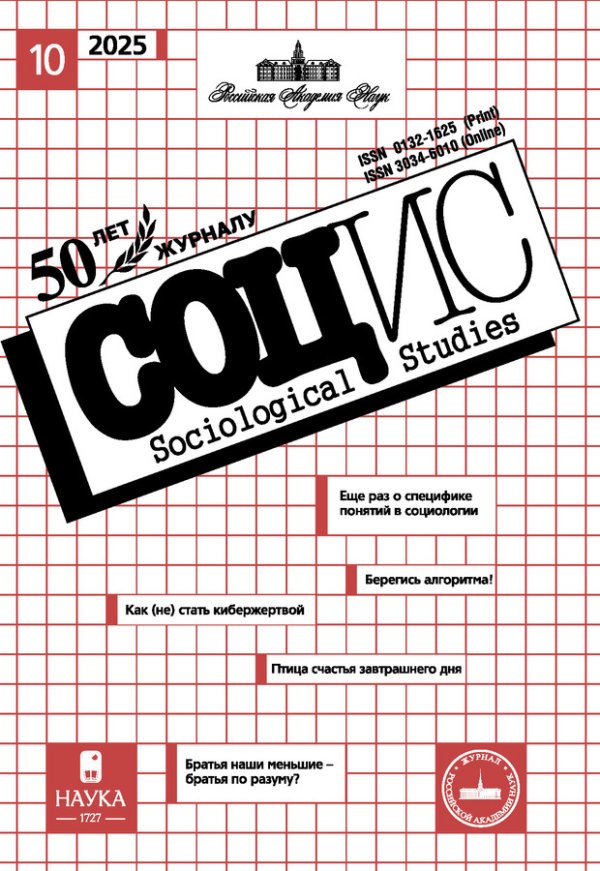Intraregional migration in Yakutia: causes and strategies of population behavior
- Authors: Neustroeva A.B.1, Barashkova A.S.1
-
Affiliations:
- North-Eastern Federal University
- Issue: No 1 (2024)
- Pages: 40-50
- Section: DEMOGRAPHY. MIGRATIONS
- URL: https://rjsvd.com/0132-1625/article/view/673645
- DOI: https://doi.org/10.31857/S0132162524010045
- ID: 673645
Cite item
Abstract
The article analyzes the issues of intraregional migration through the prism of migration behavior strategies of the population, which mean the actions taken earlier by a migrant to change his place of residence, his attitudes and possible steps in the future. Based on the data of a sociological study and statistical indicators, the frequency of respondents’ relocations, the funds they used during the last move, and the composition of those who moved at the same time were analyzed. The differences between the regions of Yakutia in terms of the coefficient of migration mobility are revealed. The degree of severity of migration sentiments and its relationship with the length of residence of respondents in this settlement has been established. It is shown that the assessment of life circumstances underlies the reasons not only for the last move, but is a strong motive for making a decision to change the place of residence in the future. At the same time, differences in the behavior strategies of potential migrants are clearly visible, depending on the direction of relocation, the availability of social capital in a new place.
Full Text
About the authors
Aiza B. Neustroeva
North-Eastern Federal University
Author for correspondence.
Email: aizok@mail.ru
Cand. Sci. (Sociol.), Research Fellow of the Center for Regional Sociology of the National Library of the Republic of Sakha, Assoc. Prof. of the Department of Sociology and Personnel Management
Russian Federation, YakutskAnastasia S. Barashkova
North-Eastern Federal University
Email: asbarashkova52@mail.ru
Cand. Sci. (Econ.), Research Fellow, Institute of Regional Economics of the Research Institute of Regional
Russian Federation, YakutskReferences
- Adaptation and integration of migrants in Russia: challenges, realities, indicators (2022). Ed. by V. I. Mukomel, K. S. Grigorieva. Moscow: FNISTC RAN. (In Russ.)
- Barashkova A. S. (1994) Housing conditions of young families in the North (on the example of RS (Ya). Sotsiologicheskie issledovaniya [Sociological Studies]. No. 7: 115–119. (In Russ.)
- Demographic processes in the Republic of Sakha (Yakutia): territorial aspect (2017). Yakutsk: Sahaada. (In Russ.)
- Denisov E. A. (2017) Migration processes in the cities of the Russian North in the 1990–2010-ies. Regional`nyje issledovaniya [Regional studies]. No. 2 (56): 44–55. (In Russ.)
- Fauser V. V., Lytkina T. S., Fauser G. N. (2016) Demographic and migration processes in the Russian North: 1980–2000. Ed. by V. V. Fauser. Syktyvkar: SGU im. P. Sorokina. (In Russ.)
- Heleniak T. (1997) Internal Migration in Russia during the Economic Transition. Post-Soviet Geography and Economics. Vol. 38(2): 81–104.
- Karachurina L. B., Mkrtchyan N. V. (2013) Population change in administrative districts and cities of Russia (1989–2010): central-peripheral relations. Voprosy geografii [Questions of geography]. No.135: 82–107. (In Russ.)
- Lee E. (1966) A Theory of Migration. Demography. Vol. 3. No. 1: 47–57.
- Massey D. (1993) Theories of International Migration: A Review and Appraisal. Population and Development Review. Vol. 19. No. 2: 431–466.
- Moiseenko V. M., Chudinovskikh O. S., Donets E. V. (1997) Migration and family composition of the population. In: Household, family and family policy / Ed. by V. V. Elizarov, N. V. Zvereva. Moscow: Dialog-MGU: 73–87. (In Russ.)
- Motrich E. L., Found S. N. (2009) Population and social development of the Russian Far East. Prostranstvennaya ekonomika [Spatial Economy]. No. 2: 47–67. (In Russ.)
- Perevedentsev V. I. (1966) Migration of the population and labor problems of Siberia. Novosibirsk: Nauka. (In Russ.)
- Rybakovsky L. L. (1973) Regional analysis of migrations. Moscow: Statistika. (In Russ.)
- Rybakovsky L. L. (2019) History and theory of population migration. B. 3. The theory of the three stages of the migration process. Moscow: Econ-Inform. (In Russ.)
- Sukneva S. A., Kuzmina R. A., Barashkova A. S. (2007) Migration sentiments of the population of the northern regions of Yakutia. In: Institute of Social Problems of Labor (Yakutsk). Coll. of scientif. papers. Iss. 13: 103–113. (In Russ.)
- Zaslavskaya T. I., Rybakovsky L. L. (1978) Migration processes and their regulation in socialist society. Sotsiologicheskie issledovaniya [Sociological Studies]. No. 1: 56–66. (In Russ.)
- Zayonchkovskaya Zh.A. (1999) Internal migration in Russia and the USSR in the XX century as a reflection of social modernization. Mir Rossii. Sociologiya. Etnologiya [Universe of Russia. Sociology. Ethnology]. Vol. 8. No. 4: 22–34. (In Russ.)
Supplementary files











